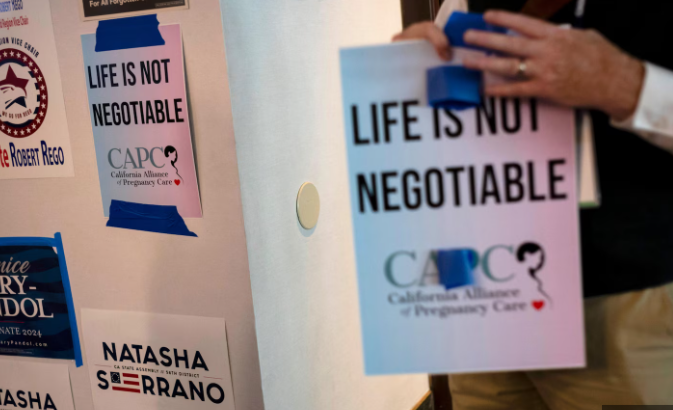Congress Republicans are attempting to thwart a Biden administration spending rule that they claim will stop millions of dollars from going to anti-abortion counseling centers, adding a new twist to the battle over access to abortion.
Congress Republicans are attempting to thwart a Biden administration spending rule that they claim will cut off millions of dollars to anti-abortion counseling centers, adding a new twist to the battle over access to abortion. According to the proposed rule, states would not be allowed to transfer federal funding intended for Americans in need to “crisis pregnancy centers,” which advocate against abortion. Millions of federal dollars are at risk, which are currently provided to the groups under the Temporary Assistance for Needy Families (TANF) program. TANF is a block grant program that was established in 1996 with the goal of preventing unwed pregnancies and providing financial support to low-income children.
The Health and Human Services department stated in its late-year rule proposal that “programs that only or primarily provide pregnancy counseling to women only after they become pregnant likely do not meet the standard.” The proposed regulation, which includes a number of limitations on how states would be able to use TANF funds, has received more than 7,000 comments. The Biden administration’s most recent attempt to enact federal laws to increase access to abortion is a plan to restrict funding for anti-abortion counseling centers.
Also read-This Winter, Make Sure You Consume plenty Of The “Vitamin D”

Abortion
This week, legislation was presented by congressional Republicans to prevent the Health and Human Services Agency from limiting the money that goes to the centers. There is no possibility that the bill will pass this year. During a House Ways and Means Committee meeting to mark up the proposal on Thursday, Republican Representative Darin LaHood of Illinois stated, “Pregnancy centers are an important and vital alternative for expectant mothers.” A recent Associated Press study revealed that states have been contributing a growing amount of funding to anti-abortion counseling centers over the past ten years, making them a favorite platform for conservatives to preach against abortion. More than a dozen states have provided the centers with about $500 million in government funding since 2010. Last year.

The centers’ mission is controversial not only because workers often advise pregnant patients against seeking an abortion, but, critics say, the organizations can provide some misleading information about abortion and contraception, like suggesting that abortion can cause breast cancer. Most centers are religiously affiliated and not licensed healthcare facilities. They typically offer pregnancy tests and some offer limited medical services such as ultrasounds. The Human Coalition, an anti-abortion organization that has locations in Georgia, Ohio, Pennsylvania, North Carolina and Texas, estimates it would lose millions of dollars in funds, said Chelsey Youman, the group’s national director of public policy. Plans to expand to Louisiana and Indiana could be put on hold if the rule goes through, she added.

Youman argues that her organization helps connect women to social services, like Medicaid, while persuading them to continue with their pregnancy. “The work we do is truly compassionate and loving care for women who are facing sometimes the most difficult moments of their lives,” Youman said. In order to alter how states might utilize the $16.5 billion in block grants meant for the most impoverished families in the country, HHS is proposing a number of changes. The plan is being made in the wake of a well-known corruption scandal in Mississippi that involved the years-long misappropriation of $77 million in TANF funds.

Restrictions would reduce the amount of money that benefits middle-class and upper-class earnings. According to the agency, the proportion of poor families receiving financial assistance has decreased from about 70% in 1996 to a little over 21% in 2020. The measure would limit the states’ ability to spend the funds on things like child care and college scholarships.

Also read-FDA Finds No Connection Between Drugs Like Wegovy, Ozempic And Suicide
images source: Google
Disclaimer: The opinions and suggestions expressed in this article are solely those of the individual analysts. These are not the opinions of HNN. For more, please consult with your doctor




































